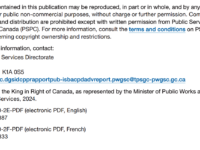Having a spent virtually the entire day yesterday talking with media and colleagues about Bill C-63, one thing has become increasingly clear: the Criminal Code and Human Rights Act provisions found in the Online Harms Act should be removed. In my initial post on the bill, I identified the provisions as one of three red flags, warning that they “feature penalties that go as high as life in prison and open the door to a tidal wave of hate speech related complaints.” There is no obvious need or rationale for penalties of life in prison for offences motivated by hatred, nor the need to weaponize human rights complaints by reviving Human Rights Act provisions on communication of hate speech. As more Canadians review the bill, there is a real risk that these provisions will overwhelm the Online Harms Act and become a primary area of focus despite not being central to the law’s core objective of mitigating harms on Internet platforms.
Blog
My First Take on the Online Harms Act: Worst of 2021 Plan Now Gone But Digital Safety Commission Regulatory Power a Huge Concern
After years of delay, the government tabled Bill C-63, the Online Harms Act, earlier today. The bill is really three-in-one: the Online Harms Act that creates new duties for Internet companies and a sprawling new enforcement system, changes to the Criminal Code and Canada Human Rights Act that meet longstanding requests from groups to increase penalties and enforcement against hate but which will raise expression concerns and a flood of complaints, and expansion of mandatory reporting of child pornography to ensure that it includes social media companies. This post will seek to unpack some of the key provisions, but with a 100+ page bill, this will require multiple posts and analysis. My immediate response to the government materials was that the bill is significantly different from the 2021 consultation and that many of the worst fears – borne from years of poorly thought out digital policy – have not been realized. Once I worked through the bill itself, concerns about the enormous power vested in the new Digital Safety Commission, which has the feel of a new CRTC funded by the tech companies, began to grow.
Conservatives Double Down on Support for Mandated Internet Age Verification and Website Blocking: Why Can’t Canada Get Common Sense Digital Policy?
Digital policy has been the source of seemingly never-ending frustration for years in Canada. The government chose to prioritize two flawed bills on online streaming and online news, both of which sparked considerable opposition, lengthy delays, and ultimately delivered few actual benefits (Bill C-11 faces at least another year of hearings at the CRTC, Bill C-18 is a disaster that has left many media companies worse off). Its 2021 consultation on online harms was so badly received that it was quickly shelved and has required nearly three years to recover. The policies it should have prioritized such as stronger privacy and competition rules were largely left to languish with Bill C-27 still in committee and now subject to mounting opposition over the decision fold AI regulation with minimal consultation into the bill.
Given that track record, it is hard to be optimistic as the online harms rules get set to take centre stage.
More Free Money: Media Lobby Campaigning For Even More Government Funding, Grants and Tax Reform
The proverbial ink is barely dry on the disastrous Bill C-18, yet the Canadian media lobby has already moved onto the next targets for government funding, grants, and tax reform. The effort, which is seemingly designed to ensure that government funding or regulation cover the entire cost of news, focuses on extending grants, expanding provincial tax credits, and overhauling the tax treatment of ad spending. It has hard to overstate how dangerous these policies have become as the sector’s addiction to government funding and regulation has come at an enormous cost that erodes public trust and created dependence on the very governments the press is supposed to hold to account.
The slippery slope of this government’s funding the media has been ongoing for years: the Local Journalism Initiative offered tens of millions in grant money, the Labour Journalism Tax Credit created a tax credit worth nearly $14,000 per journalist when established that was more than doubled last year on a retroactive basis to nearly $30,000 per journalist, and the Online News Act (Bill C-18) offered the hope (or more accurately illusion) of hundreds of millions more from Google and Meta. On top of the federal money, the Quebec government offers a similar tax credit system that comes close to ensuring that government money and regulation cover the entire cost of news journalists at print and digital publications in the province. And if that were not enough, the CRTC is working through its plan for Bill C-11, which the Canadian Association of Broadcasters hopes will lead to the creation of yet another news fund, with 30% of contributions from Internet streaming services such as Netflix and Disney going to the news divisions of Canadian broadcasters such as Bell and Rogers.
Bid to End Crown Copyright is Back: MP Brian Masse’s Bill C-374 Would Remove Copyright from Government Works
Crown copyright, which grants the government exclusive copyright in any any work that is, or has been, prepared or published by or under the direction or control, has long been the focus on copyright and open government advocates who have called for its elimination. Under the current system of crown copyright that dates back for decades, government departments can use copyright to limit the publication or distribution of public works. While the government moved away from paid licensing to a non-commercial licence in 2010, commercial uses are still subject to permission and licence. The issue was one of the most controversial at the 2019 copyright review with the committee split on the issue: the government supported the creation of an open licence, while both the Conservatives and NDP backed its elimination altogether.
While debate over crown copyright continues (this 2019 Law Bytes podcast episode with Amanda Wakaruk and Jeremy de Beer focused on it), NDP MP Brian Masse has been a consistent advocate in favour of its elimination. There have been bills to eliminate crown copyright that date back to the 1990s, but Masse has introduced several crown copyright bills in recent years. Last week, he did it again with Bill C-374.











